02 ONI
2019
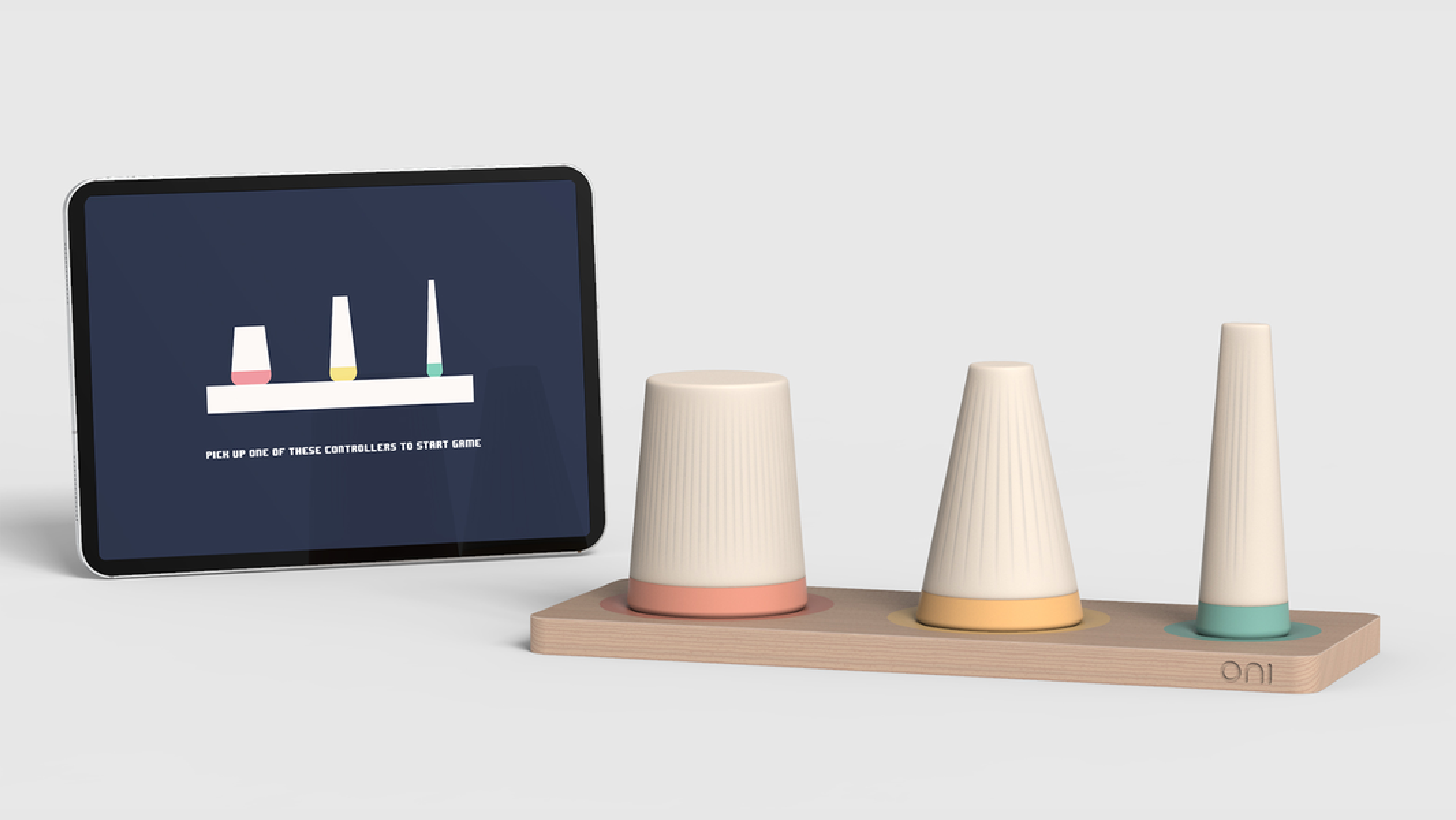
Role
UX Research + UI Design + Product prototyping + 3D-printing
In collaboration with
Ysanne Yeo
Cao Minh Huy
AWWA
UX Research + UI Design + Product prototyping + 3D-printing
In collaboration with
Ysanne Yeo
Cao Minh Huy
AWWA
Having to go through extended periods of physiotherapy after a stroke is a painful experience, both physically and mentally. It is no wonder that elderly patients at AWWA struggle to find motivation to perform their rehabilitation exercises, which then leads to poorer adherence to their rehabilitation plan.
This is where Oni comes into play: to instil joy in therapy in order to engage patients better and improve the quality of exercises performed.
Initial research and insights
![]()
The original grasp exercise was performed using plastic cones which did not provide clear objectives or positive feedback. The shape of the cones was also not able to cater to varying grasp proficiencies.
Solution
![]()
![]()
Oni is an interactive game that can be played with 3 wireless controllers, shaped with increasing difficulty of grasp. Each is programmed to recognise a different movement, including pouring, shaking, and spreading. These are common gestures used in daily life requiring quality of grasp.
![]()
![]()
Dynamic visual feedback allows the user to control their actions, as they would in real life, hence increasing concentration, engagement and their overall therapy experience.
![]()
By introducing the concept of gamification, there are now clear objectives and dynamic feedback. The real game-changer however is that simulating a familiar activity creates self-motivation within patients. Beyond simply performing their exercises, patients showed cognitive engagement and quality movements in trying to control the corresponding on-screen feedback.
![]()
![]()
Given the new interactive setup, minutes of physiotherapy went by without giving instructions for patients to comply.
︎︎︎Video of Oni Gameplay
︎︎︎ Back
This is where Oni comes into play: to instil joy in therapy in order to engage patients better and improve the quality of exercises performed.
Initial research and insights
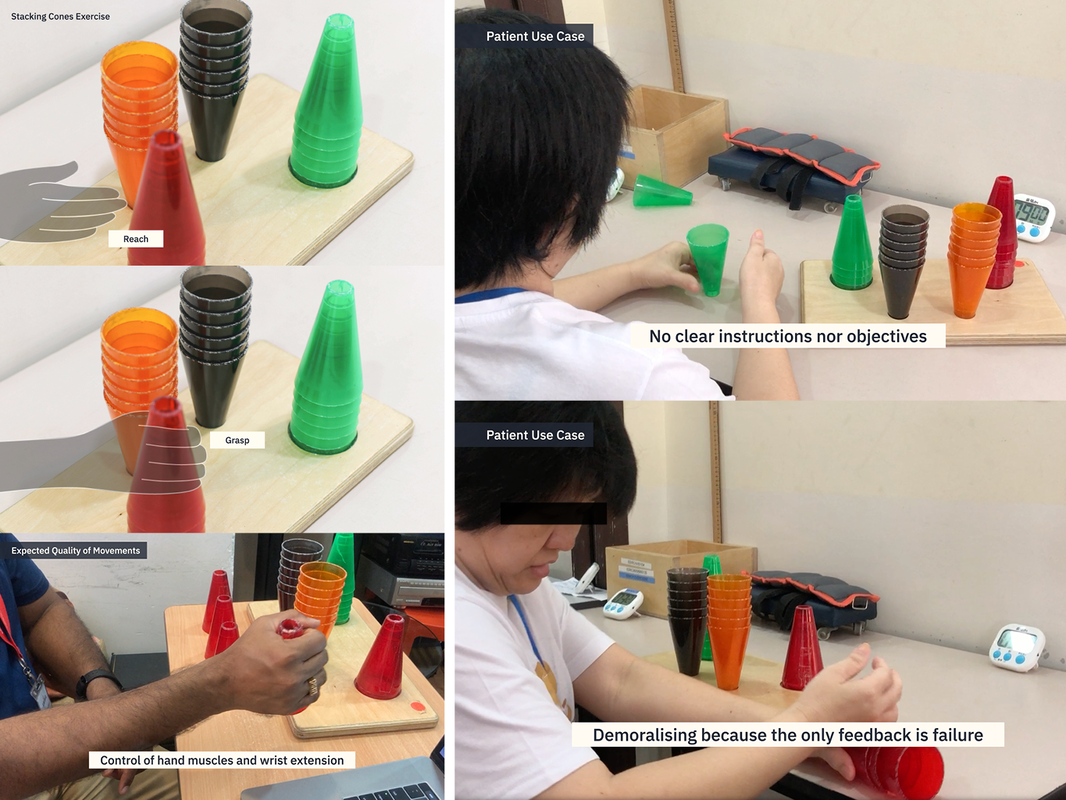
The original grasp exercise was performed using plastic cones which did not provide clear objectives or positive feedback. The shape of the cones was also not able to cater to varying grasp proficiencies.
Solution

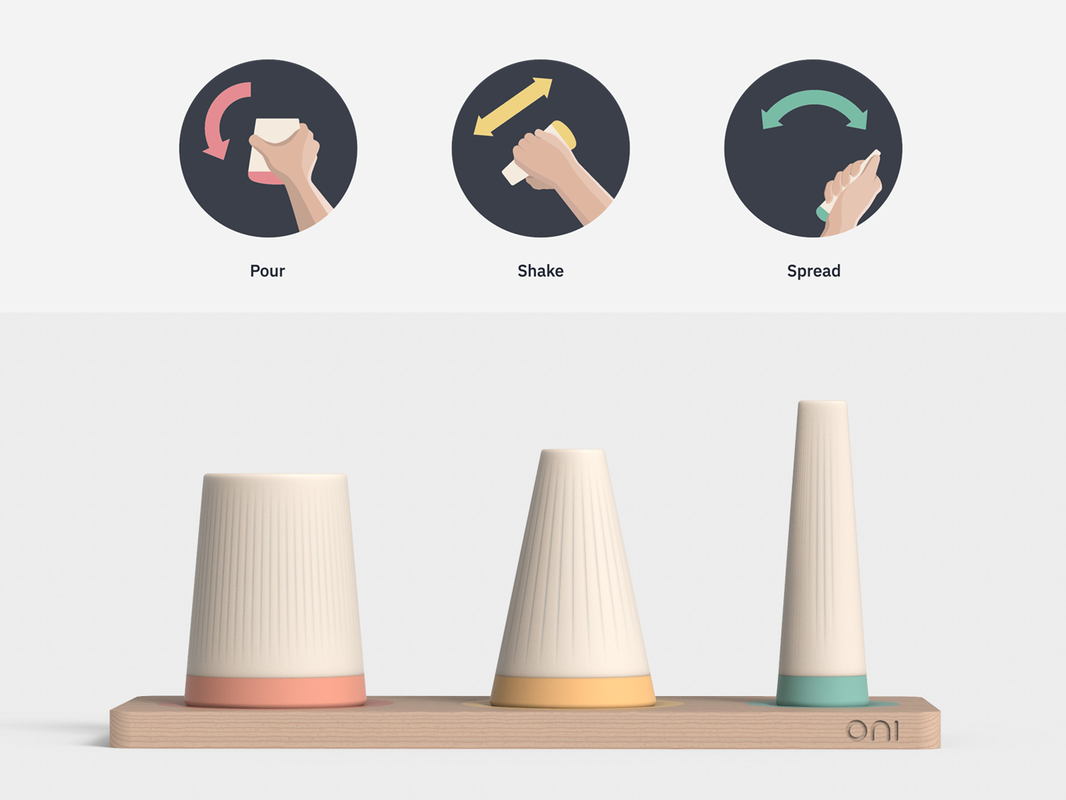
Oni is an interactive game that can be played with 3 wireless controllers, shaped with increasing difficulty of grasp. Each is programmed to recognise a different movement, including pouring, shaking, and spreading. These are common gestures used in daily life requiring quality of grasp.
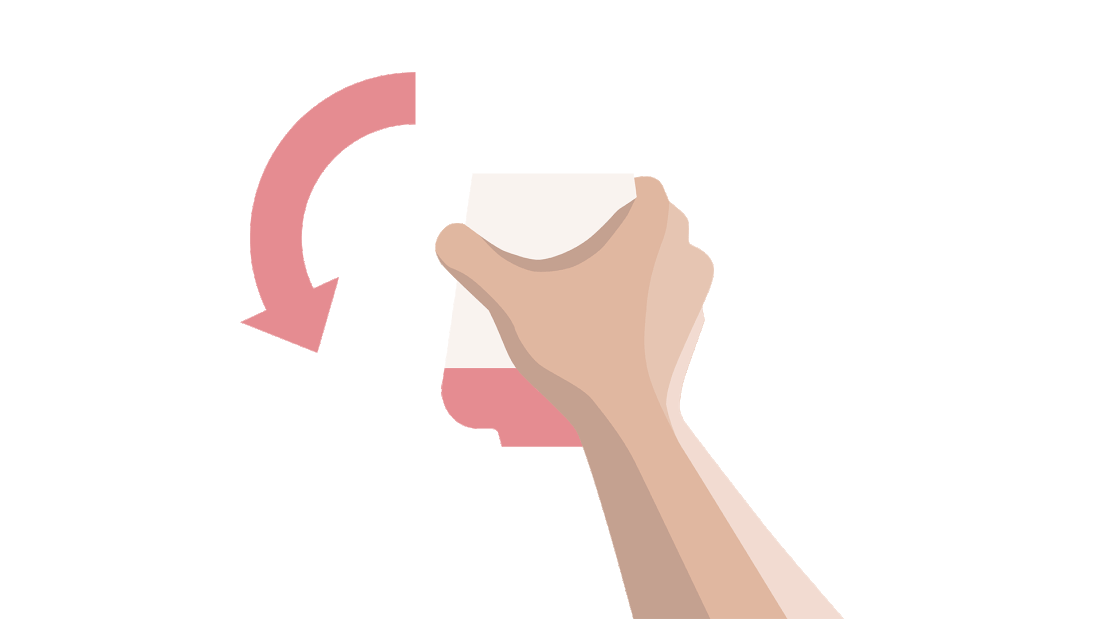
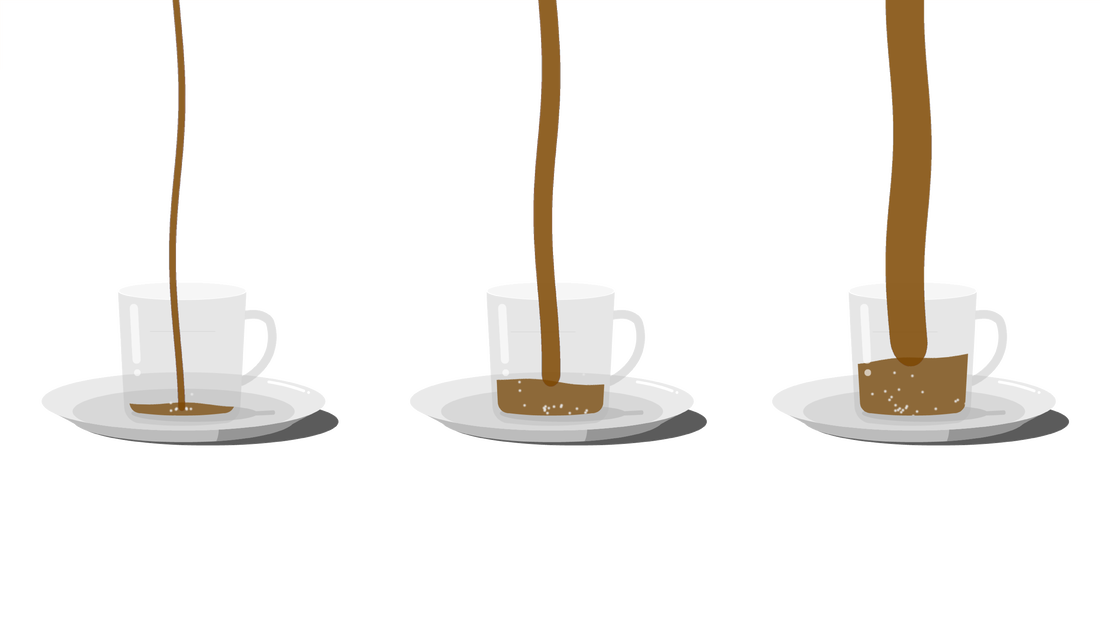
Dynamic visual feedback allows the user to control their actions, as they would in real life, hence increasing concentration, engagement and their overall therapy experience.

By introducing the concept of gamification, there are now clear objectives and dynamic feedback. The real game-changer however is that simulating a familiar activity creates self-motivation within patients. Beyond simply performing their exercises, patients showed cognitive engagement and quality movements in trying to control the corresponding on-screen feedback.

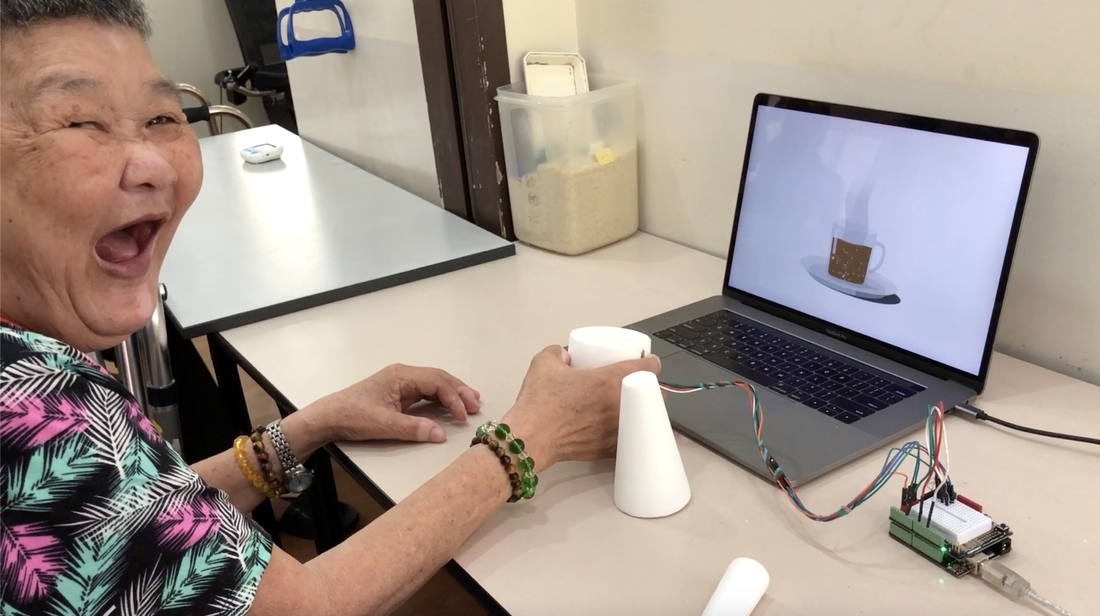
Given the new interactive setup, minutes of physiotherapy went by without giving instructions for patients to comply.
︎︎︎Video of Oni Gameplay
︎︎︎ Back